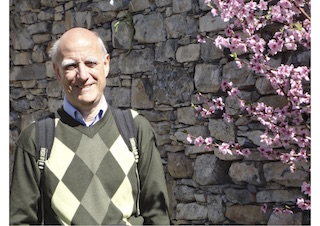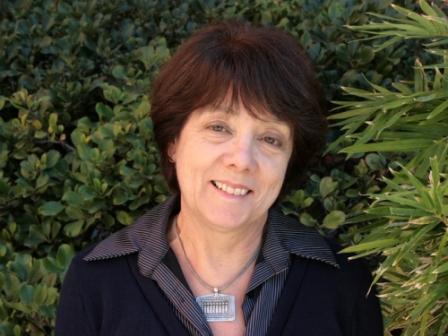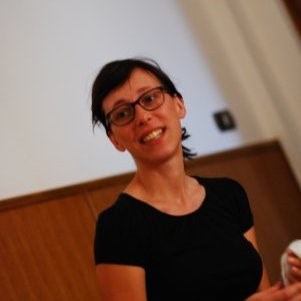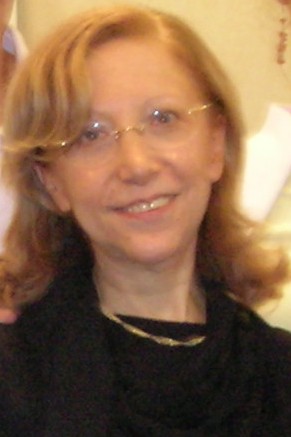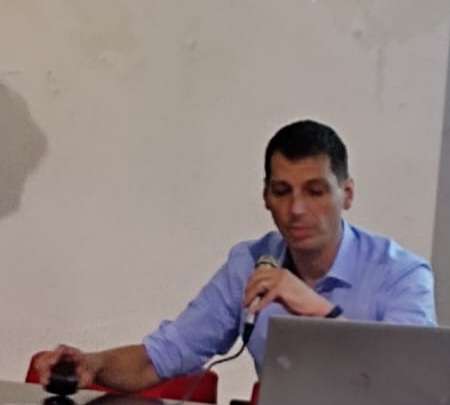Studying at the University of Verona
Here you can find information on the organisational aspects of the Programme, lecture timetables, learning activities and useful contact details for your time at the University, from enrolment to graduation.
Academic calendar
The academic calendar shows the deadlines and scheduled events that are relevant to students, teaching and technical-administrative staff of the University. Public holidays and University closures are also indicated. The academic year normally begins on 1 October each year and ends on 30 September of the following year.
Course calendar
The Academic Calendar sets out the degree programme lecture and exam timetables, as well as the relevant university closure dates..
| Period | From | To |
|---|---|---|
| semestrino IA | Sep 29, 2014 | Nov 15, 2014 |
| Semestrino IB | Nov 17, 2014 | Jan 17, 2015 |
| Semestrino IIA | Feb 23, 2015 | Apr 18, 2015 |
| Semestrino IIB | Apr 20, 2015 | Jun 6, 2015 |
| Session | From | To |
|---|---|---|
| Sessione invernale | Jan 19, 2015 | Feb 21, 2015 |
| Sessione estiva | Jun 8, 2015 | Jul 31, 2015 |
| Sessione autunnale | Aug 31, 2015 | Sep 26, 2015 |
| Session | From | To |
|---|---|---|
| Sessione estiva | Jul 7, 2015 | Jul 8, 2015 |
| Sessione autunnale - I appello | Oct 27, 2015 | Oct 28, 2015 |
| Sessione autunnale - II appello | Dec 15, 2015 | Dec 16, 2015 |
| Sessione invernale straordinaria | Mar 15, 2016 | Mar 16, 2016 |
| Period | From | To |
|---|---|---|
| Festa di Ognissanti | Nov 1, 2014 | Nov 1, 2014 |
| Festa dell'Immacolata Concezione | Dec 8, 2014 | Dec 8, 2014 |
| VACANZE DI NATALE | Dec 22, 2014 | Jan 6, 2015 |
| Vacanze di Pasqua | Apr 2, 2015 | Apr 7, 2015 |
| Festa della Liberazione | Apr 25, 2015 | Apr 25, 2015 |
| Festa dei Lavoratori | May 1, 2015 | May 1, 2015 |
| Festa del S. Patrono S. Zeno | May 21, 2015 | May 21, 2015 |
| Festa della Repubblica | Jun 2, 2015 | Jun 2, 2015 |
| Vacanze Estive | Aug 10, 2015 | Aug 16, 2015 |
Exam calendar
Exam dates and rounds are managed by the relevant Culture and Civilisation Teaching and Student Services Unit.
To view all the exam sessions available, please use the Exam dashboard on ESSE3.
If you forgot your login details or have problems logging in, please contact the relevant IT HelpDesk, or check the login details recovery web page.
Should you have any doubts or questions, please check the Enrollment FAQs
Academic staff

Avezzu' Guido
 guido.avezzu@univr.it
guido.avezzu@univr.it
 augusto.barbi@univr.it
augusto.barbi@univr.it

Bassetti Massimiliano
 massimiliano.bassetti@univr.it
massimiliano.bassetti@univr.it
 045802 8376
045802 8376
 lorenzo.carpane@univr.it
lorenzo.carpane@univr.it
 alberto.cavarzere@univr.it
alberto.cavarzere@univr.it

Chiecchi Giuseppe
 giuseppe.chiecchi@univr.it
giuseppe.chiecchi@univr.it
 +39 045802 8117
+39 045802 8117
 federica.gonzato@univr.it
federica.gonzato@univr.it

Mastrocinque Attilio
 attilio.mastrocinque@univr.it
attilio.mastrocinque@univr.it
 +39 045802 8386
+39 045802 8386
 silvia.monti@univr.it
silvia.monti@univr.it
 linda.napolitano@univr.it
linda.napolitano@univr.it

Pasini Roberto
 pasini.roberto@univr.it
pasini.roberto@univr.it
 +39 045802 8121
+39 045802 8121
Peresani Marco
 dino.piovan@univr.it
dino.piovan@univr.it
 elisa.ravazzoli@univr.it
elisa.ravazzoli@univr.it
 alberto.scandola@univr.it
alberto.scandola@univr.it
Tani Stefano
 stefano.tani@univr.it
stefano.tani@univr.it
 +39 045802 8110
+39 045802 8110
 giorgia.totola@univr.it
giorgia.totola@univr.it
 gianmaria.varanini@univr.it
gianmaria.varanini@univr.it
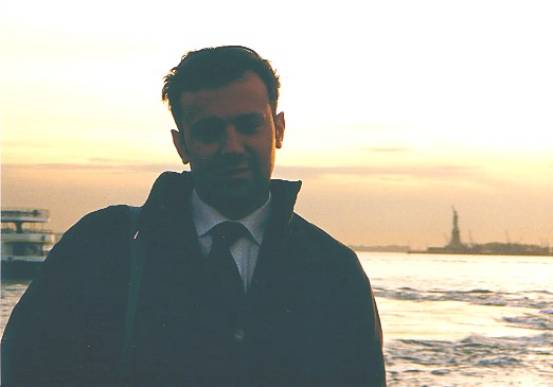
Zaccarello Michelangelo
 michelangelo.zaccarello@univr.it
michelangelo.zaccarello@univr.it
 +39 045 802 8330
+39 045 802 8330
Study Plan
The Study Plan includes all modules, teaching and learning activities that each student will need to undertake during their time at the University.
Please select your Study Plan based on your enrollment year.
1° Year
| Modules | Credits | TAF | SSD |
|---|
Un insegnamento a scelta tra i seguentiLingua straniera competenza linguistica liv. b1 (informatizzato)2° Year activated in the A.Y. 2015/2016
| Modules | Credits | TAF | SSD |
|---|
Latin literature (i)
Un insegnamento a scelta tra i seguentiUn insegnamento a scelta tra i seguentiDue insegnamenti a scelta tra i seguentiUn insegnamento a scelta tra i seguenti3° Year activated in the A.Y. 2016/2017
| Modules | Credits | TAF | SSD |
|---|
Un insegnamento a scelta tra i seguentiTre insegnamenti a scelta tra i seguenti | Modules | Credits | TAF | SSD |
|---|
Un insegnamento a scelta tra i seguentiLingua straniera competenza linguistica liv. b1 (informatizzato)| Modules | Credits | TAF | SSD |
|---|
Latin literature (i)
Un insegnamento a scelta tra i seguentiUn insegnamento a scelta tra i seguentiDue insegnamenti a scelta tra i seguentiUn insegnamento a scelta tra i seguenti| Modules | Credits | TAF | SSD |
|---|
Un insegnamento a scelta tra i seguentiTre insegnamenti a scelta tra i seguenti | Modules | Credits | TAF | SSD |
|---|
Legend | Type of training activity (TTA)
TAF (Type of Educational Activity) All courses and activities are classified into different types of educational activities, indicated by a letter.
Italian Philology (i) (2016/2017)
Teaching code
4S01275
Teacher
Coordinator
Credits
6
Language
Italian
Scientific Disciplinary Sector (SSD)
L-FIL-LET/13 - PHILOLOGY OF ITALIAN LITERATURE
Period
Sem. IIB dal Apr 24, 2017 al Jun 10, 2017.
Learning outcomes
The course aims at introducing the various aspects and problems related to the analysis of vernacular texts and their transmission, illustrating the main philological criteria and elements of editorial technique; due attention will be paid to the complex relationship between philological reconstruction and interpretation of text, the choice of a copy-text and the different methods in optimizing linguistic and textual reliability for medieval literary works, especially when drawn from autograph sources. A closer reference will be made to the 14th century, with analytical reading of some works by Giovanni Boccaccio (1313-1375) that seem particularly relevant for the methodological problems of editing from autograph manuscripts. Good cases in point will be the Berlin autograph of his "Decameron" (c. 1370-72) and his three editions of Dante's works, now in Toledo, Firenze and Vatican City.
Program
Reading Syllabus:
L. Battaglia Ricci, Boccaccio, Roma, Salerno Ed., 2013.
F. Brambilla Ageno, L'edizione critica dei testi volgari, Padova, Antenore, 1984.
P. Manni, La lingua di Giovanni Boccaccio, Bologna, Il Mulino, 2016.
*During the course, further specific readings may be suggested and/or provided in photocopies.
Non-attendees will also read:
P. Stoppelli, Filologia della letteratura italiana, Roma, Carocci, 2008.
M. Zaccarello, Alcune questioni di metodo nella critica dei testi volgari, Verona, Fiorini, 2012.
Examination Methods
The exam will be taken as a viva.
Type D and Type F activities
Modules not yet included
Career prospects
Module/Programme news
News for students
There you will find information, resources and services useful during your time at the University (Student’s exam record, your study plan on ESSE3, Distance Learning courses, university email account, office forms, administrative procedures, etc.). You can log into MyUnivr with your GIA login details: only in this way will you be able to receive notification of all the notices from your teachers and your secretariat via email and soon also via the Univr app.
Graduation
List of theses and work experience proposals
| theses proposals | Research area |
|---|---|
| tesi di Glottologia, Storia comparata, Linguistica storica | ENGLISH LANGUAGE - Grammar and Syntax – Grammatik und Syntax |
| tesi di Glottologia, Storia comparata, Linguistica storica | GERMANIC LANGUAGE - Dialectology - Dialektologie |
| tesi di Glottologia, Storia comparata, Linguistica storica | HUMANITIES & SOCIAL STUDIES - HUMANITIES & SOCIAL STUDIES |
| tesi di Glottologia, Storia comparata, Linguistica storica | Indo-European languages & literatures - Indo-European languages & literatures |
| tesi di Glottologia, Storia comparata, Linguistica storica | LINGUISTICS - LINGUISTICS |
| Stage | Research area |
|---|---|
| Lavorare in archivio | Various topics |
| L'iter del libro in biblioteca | Various topics |
Gestione carriere
Linguistic training CLA
Student mentoring
Requisiti classi di abilitazione insegnamento
Requisiti necessari per accedere alle classi di abilitazione per l'insegnamento.
vedi allegato pdf
Inoltre, per informazioni sui 24 CFU nelle discipline antropo-psico-pedagogiche e nelle metodologie e tecnologie didattiche, si veda -> LINK
Documents
| Title | Info File |
|---|---|
|
|
pdf, it, 307 KB, 30/11/21 |








